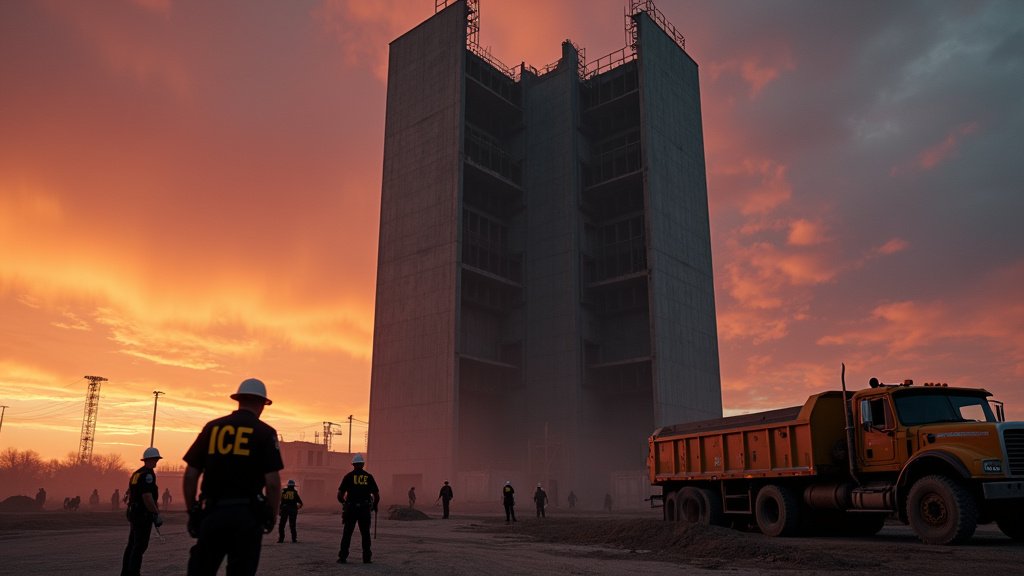French Government Grapples with Major Funding Scandal as PNF Launches Investigation
Paris, France — The French government under President Emmanuel Macron was plunged into significant turbulence today following the formal initiation of a major investigation by the National Financial Prosecutor’s Office (Parquet National Financier, PNF) into alleged widespread funding irregularities within the Ministry of the Interior. The probe represents a serious challenge to the government’s credibility and stability, coming at a critical juncture ahead of crucial legislative sessions.
The investigation, confirmed by sources close to the PNF and government officials, reportedly centers on the allocation of state contracts and public subsidies. These alleged irregularities are said to date back to early 2024, raising questions about financial management and procurement processes within one of France’s most significant ministries.
Key Figures Reportedly Under Scrutiny
The PNF’s inquiry is understood to be scrutinizing the roles of several key individuals connected to the Ministry of the Interior. Among those reportedly targeted by the investigation are Deputy Minister Jean Dubois and chief of staff Sophie Lefevre. While the specific nature of the allegations against each individual has not been fully disclosed by the PNF, sources suggest the focus is on their involvement in or oversight of the contested financial allocations and contractual decisions made within the ministry during the specified period.
The involvement of such high-profile figures immediately elevates the political sensitivity of the investigation. Deputy Minister Jean Dubois holds a significant portfolio within the ministry, and the chief of staff role is central to the ministry’s daily operations and decision-making processes. Allegations of irregularities touching these positions signal a potentially deep-seated issue rather than an isolated incident.
The Nature of the Allegations: Contracts and Subsidies
The core of the PNF’s investigation revolves around the opaque and potentially irregular allocation of state contracts and public subsidies. State contracts, which can involve significant public funds, are subject to strict procurement rules designed to ensure fairness, transparency, and value for money. Public subsidies, intended to support specific projects or organizations aligned with public interest objectives, also require rigorous oversight and justification.
Sources familiar with the case suggest the investigation is examining whether proper procedures were followed in awarding certain contracts and distributing specific subsidies. This could involve accusations ranging from conflicts of interest and favoritism to potential misuse of public funds or influence peddling. The timeframe, specifically dating back to early 2024, implies the PNF is focusing on relatively recent activities, making the potential impact on the current government and its immediate past actions particularly acute.
The Role of the National Financial Prosecutor’s Office
The decision by the PNF to launch a formal investigation underscores the seriousness of the allegations. The PNF is an independent judicial authority in France specializing in complex financial crime, corruption, and tax fraud. Its mandate is to investigate and prosecute serious economic and financial offenses that harm public finances or the integrity of the economic system. A formal investigation by the PNF is initiated when there are sufficient grounds to suspect the commission of a crime.
The PNF operates independently of the government, and its involvement ensures a thorough and impartial judicial process. This independence is crucial for public trust, but it also means the government cannot directly influence the course or outcome of the investigation.
Government Response and Political Fallout
In response to the unfolding crisis, President Emmanuel Macron’s office has issued a statement acknowledging the investigation and promising full cooperation with the National Financial Prosecutor’s Office. The statement emphasized the government’s commitment to transparency and upholding the rule of law, asserting that all necessary steps would be taken to assist the judicial process. This swift public stance aims to project an image of accountability and a willingness to confront any potential wrongdoing.
However, the political fallout has been immediate and severe. Opposition parties across the political spectrum have seized upon the investigation, quickly launching scathing critiques of the government and demanding accountability. These parties have wasted no time in calling for a vote of no confidence against the government. Such a vote, if successful, could force the resignation of the Prime Minister and the entire cabinet, potentially leading to a period of significant political instability.
Threat to a Fragile Coalition and Legislative Agenda
The call for a no-confidence vote highlights the fragile nature of President Macron’s coalition government. Having lost its absolute majority in the National Assembly in the 2022 legislative elections, the government has relied on alliances and negotiating on a bill-by-bill basis to pass legislation. The Ministry of the Interior scandal threatens to further erode this precarious stability, potentially making it even harder for the government to secure parliamentary support.
The timing of the scandal is particularly damaging as it coincides with crucial legislative sessions focused on significant economic reforms. The government has been pushing forward key pieces of legislation aimed at addressing France’s economic challenges, including measures related to public finances, employment, and competitiveness. The distraction and political pressure created by the PNF investigation and the threat of a no-confidence vote could derail or significantly complicate the passage of these essential reforms.
Opposition parties are likely to use the scandal to question the government’s competence, integrity, and ability to govern effectively. The focus will inevitably shift from policy debates to issues of ethics and potential corruption, consuming valuable parliamentary time and political capital.
The Road Ahead
The PNF investigation is likely to be a lengthy and complex process. It will involve gathering evidence, conducting interviews, and potentially questioning the individuals targeted. The outcome is uncertain; it could lead to formal charges or ultimately conclude without prosecution, depending on the findings.
For Deputy Minister Jean Dubois and chief of staff Sophie Lefevre, being formally targeted by the PNF’s investigation represents a significant personal and professional challenge, regardless of the eventual outcome. Their positions may become untenable as the probe progresses, potentially requiring them to step aside.
For the government, navigating this crisis will require careful management. President Macron and his government must balance cooperating fully with the judiciary while attempting to maintain political control and pursue their legislative agenda. The success of the no-confidence motion will depend on the ability of the diverse opposition parties to unite, a challenge they have faced repeatedly in the past.
The coming weeks will be critical for the French government as the PNF investigation continues and the political fallout intensifies. The stability of the fragile coalition hangs in the balance, and the fate of key economic reforms remains uncertain as the country grapples with the implications of this significant funding scandal.






